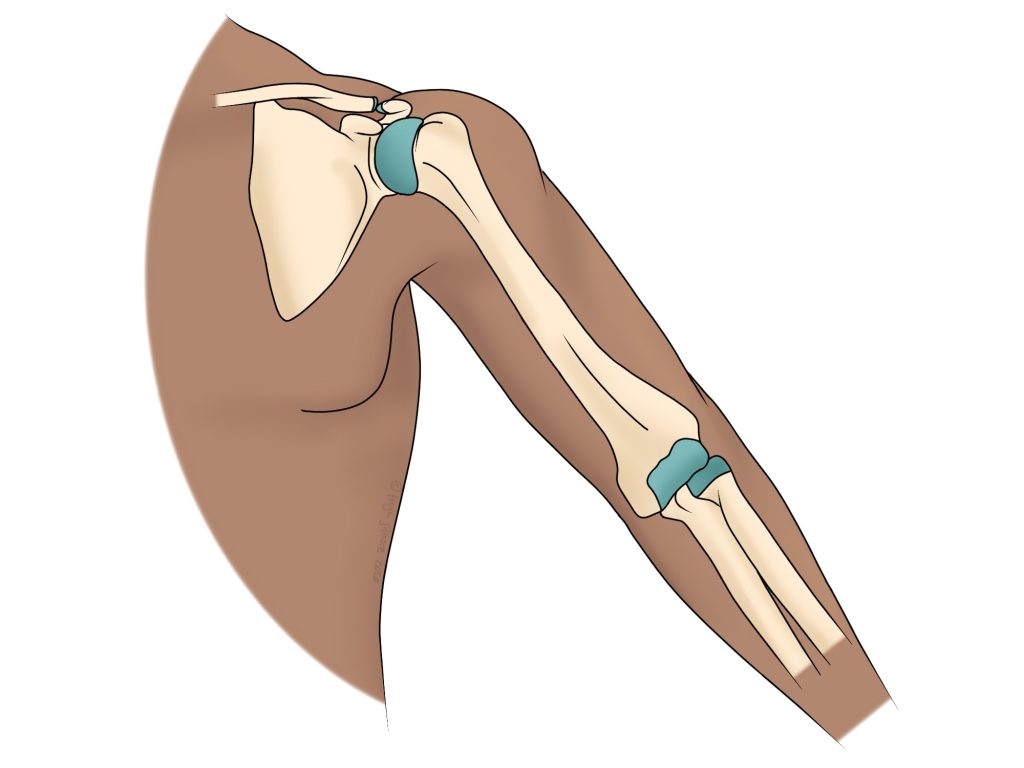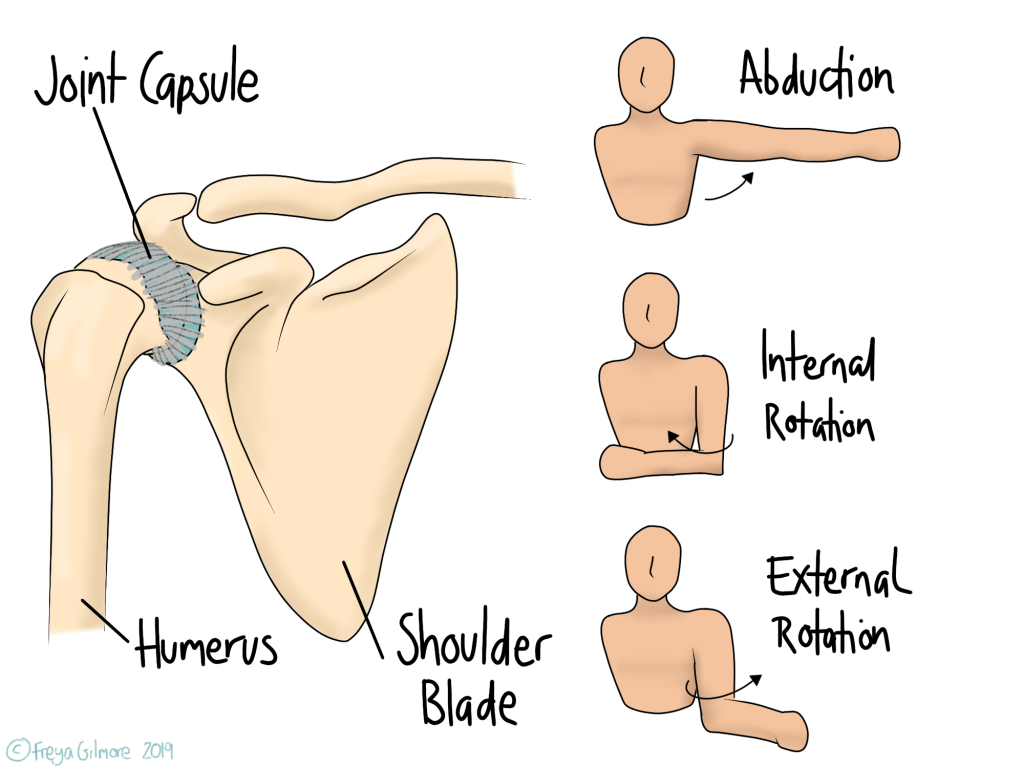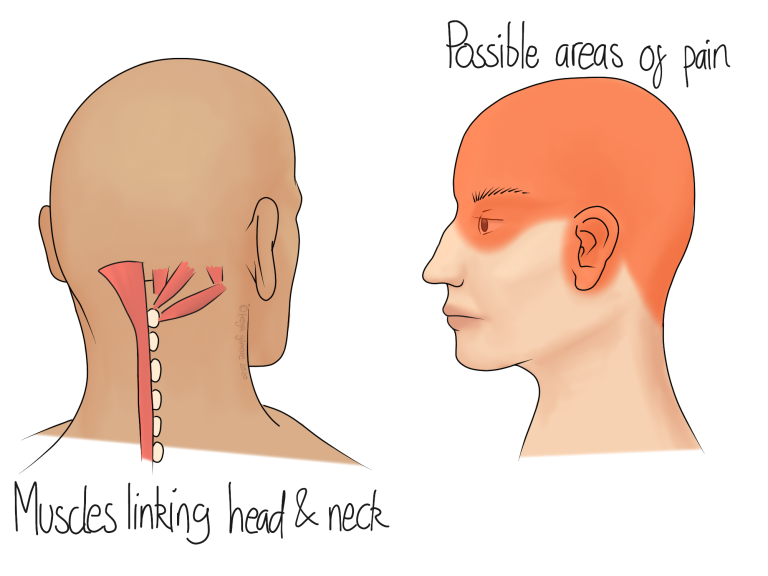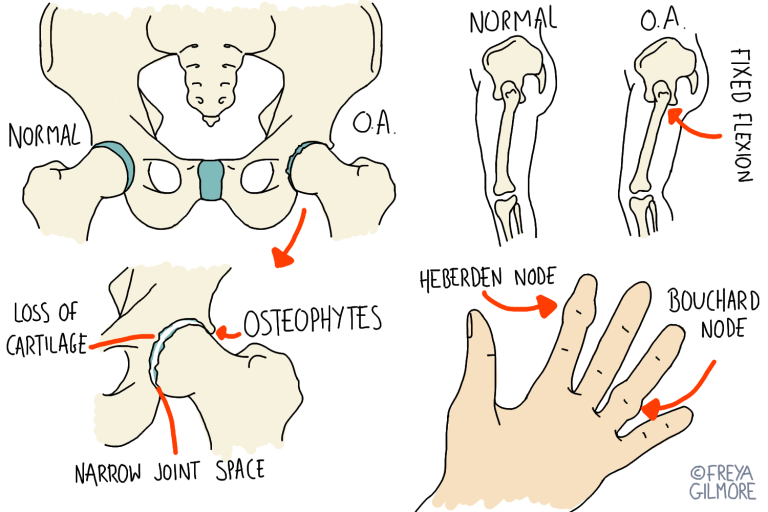People often associate osteopathy with treating back pain, but we can actually treat from head to toe. The shoulder and elbow are areas we see less frequently in clinic, but they can present a number of different issues that respond well to osteopathy.

Tennis Elbow and Golfers Elbow
Despite the names, tennis and golfers elbows are often unrelated to raquet sports. Pain comes from irritation of the area where forearm muscles attach to bone around the elbow. Repeated irritation can cause inflammation which makes symptoms more persistent. The side of the arm that’s affected (front or back) gives a diagnosis of golfer’s or tennis elbow. This is dictated by the movement that caused the irritation initially.
Your osteopath will work to identify any areas that might have led these structures to work too hard. We can also advise on different ways to do the activities that played a role in the condition’s development. Treating the painful area itself can help to reduce inflammation, especially when paired with a cool compress. Your osteopath will give you personalised advice based on your case.
Student’s Elbow
This is the colloquial term for bursitis in the elbow. It can look quite dramatic, but generally isn’t too uncomfortable. Bursae are little fluid-filled sacks found all over the body. Their role is to sit between bone and soft tissue to prevent friction injuries to the tendon or muscle. The one affected in this case is located just where the elbow makes contact with the desk if you were to lean on your elbow- as a student would.
Prolonged and repeated pressure on the bursa causes swelling, which can eventually lead to an egg-sized lump beneath the skin.
Icing the area and making an effort to avoid leaning on it will help the bursa to settle back down. Your osteopath can help to flush out the area and relieve any extra tension coming from muscles or stiff joints. We can offer ergonomic advice too, so if you find it difficult to avoid leaning on the desk (or chair’s arm rest), let us know and we might have a solution for you.
Frozen Shoulder

Read more about Frozen Shoulder here.
Rotator Cuff Injuries
The rotator cuff is a group of four muscles that are responsible for rotating the shoulder. They can be overstrained by strong or repetitive movements, such as overhead throwing. But most cases of rotator cuff tears are associated with falls or degeneration.
Some more severe cases cause a palpable dip in the muscle, but weakness on examination would also suggest a rotator cuff tear or strain. Diagnosis by ultrasound may be more appropriate for fringe cases. Rehabilitation is key for managing this injury, with early intervention making a big difference to the outcome. Treatment to encourage optimal movement through the shoulder joint and muscles combined with an evolving exercise plan can help to get your shoulder back on track. As always, we will also check that other areas aren’t over compensating and likely to cause further issues elsewhere.
Click here to make an appointment for your elbow or shoulder pain in Bristol


